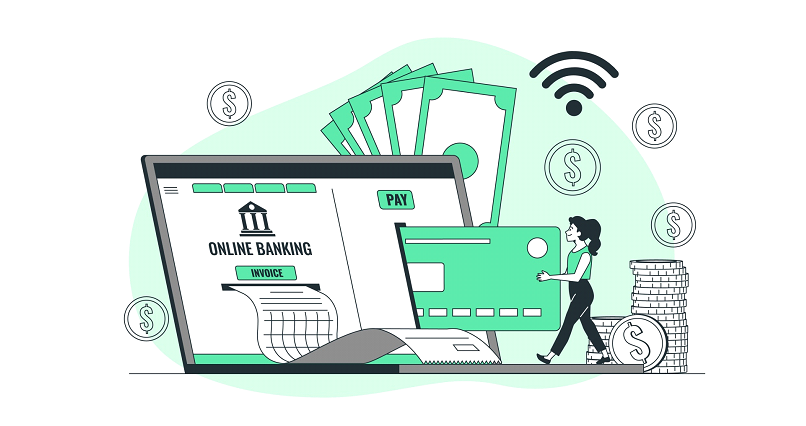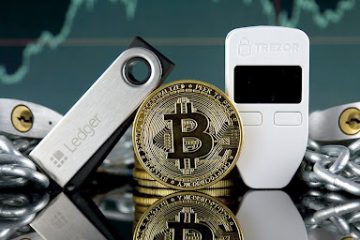The advent of mobile wallets has ushered in a new era of convenience and security in digital transactions, revolutionizing the way we pay for goods and services. This article delves into the various facets of mobile wallets, including their types, underlying technologies, prominent examples in the market, benefits, and the availability of mobile wallet solutions for businesses.
Mobile wallets types
Mobile wallets encompass various types tailored to diverse user preferences and needs:
⦁ Closed Wallets: These wallets are exclusive to a specific merchant or service provider, limiting transactions within their ecosystem.
⦁ Semi-Closed Wallets: Semi-closed wallets enable purchases at multiple merchants within a predefined network, often featuring loyalty programs and rewards.
⦁ Open Wallets: Offering maximum flexibility, open wallets facilitate transactions at any merchant accepting mobile payments.
⦁ Virtual Wallets: Purely digital, virtual wallets are accessed via mobile apps or web browsers, ideal for online transactions and peer-to-peer payments.
Mobile wallet functionality
The functionality of a mobile wallet typically involves several steps:
⦁ Registration: Users download the mobile wallet app and register by providing personal and payment information.
⦁ Loading Funds: Users link their bank accounts, credit cards, or other sources to add funds to their mobile wallet.
⦁ Making Payments: Users select the desired payment method within the app and authenticate using biometric data or a PIN.
⦁ Transaction Processing: The mobile wallet securely transmits payment information to the merchant’s terminal or online gateway, completing the transaction.
Technologies Underpinning Mobile Wallets
Mobile wallets leverage several key technologies to facilitate seamless and secure transactions, including Near Field Communication (NFC), QR codes, and tokenization:
⦁ Near Field Communication (NFC): NFC enables contactless communication between devices, enabling users to make payments by simply tapping their smartphones on compatible terminals.
⦁ QR Codes: QR codes encode payment information into a scannable code, facilitating secure transactions that can be easily read by a smartphone camera.
⦁ Tokenization: Tokenization replaces sensitive payment data like credit card numbers with unique tokens, enhancing security and reducing the risk of fraud.
Examples of Mobile Wallets
The mobile wallet market boasts several prominent players, each offering unique features and functionalities:
⦁ Apple Pay: Apple’s mobile payment solution enables users to make purchases using their iPhone, iPad, Apple Watch, or Mac devices at supported merchants globally.
⦁ Google Pay: Google Pay provides a seamless payment experience across Android devices, allowing users to store payment cards, loyalty cards, and transit passes for easy access.
⦁ Samsung Pay: Samsung Pay utilizes NFC and Magnetic Secure Transmission (MST) technologies, enabling users to make payments at a wide range of point-of-sale terminals.
Benefits of Mobile Wallets
Mobile wallets offer numerous benefits for both consumers and merchants, including:
⦁ Convenience: Mobile wallets eliminate the need to carry physical cash or cards, streamlining the payment process and reducing friction at checkout.
⦁ Security: Advanced security measures such as biometric authentication and tokenization safeguard users’ payment information, minimizing the risk of unauthorized access.
⦁ Speed: Mobile payments are faster than traditional card transactions, enabling users to complete transactions quickly with just a few taps or scans.
⦁ Loyalty Programs: Many mobile wallets integrate loyalty programs and rewards, incentivizing users to make repeat purchases and fostering customer engagement.
Mobile Wallet Solutions
Instead of developing their mobile wallet solution from scratch, fintech companies can leverage scalable ready-made mobile wallet solutions, such as the core banking system offered by Advapay. This digital banking solution is tailored for businesses seeking to launch their mobile wallet swiftly and efficiently, expediting time-to-market and maintaining a competitive edge in the FinTech industry. Ready solutions provide a comprehensive array of features and services, including multi-currency accounts, bank payments integration, and money transfer functionalities, enabling businesses to develop secure and customizable mobile wallet solutions to meet their users’ diverse financial needs.
⦁ Bill Payments: Mobile wallets simplify the bill payment process by enabling users to conveniently settle various bills directly through the app. Whether it’s utility bills, mobile top-ups, or broadband payments, users can save time and effort by managing their payments within the wallet app.
⦁ Spend Tracking: Mobile wallet solutions provide users with intuitive visualizations such as charts and graphs to monitor and track their spending habits. This feature enables better financial management and budgeting, empowering users to make informed decisions about their finances.
⦁ Currency Exchange: Mobile wallets facilitate seamless currency exchange within the digital wallet, allowing users to convert one currency to another instantly and conveniently, all within the same app.
In conclusion, mobile wallets signify a transformative shift in the way we conduct financial transactions, offering unparalleled convenience, security, and flexibility. As technology continues to advance and consumer preferences evolve, mobile wallets are positioned to play an increasingly prominent role in shaping the future of payments.




